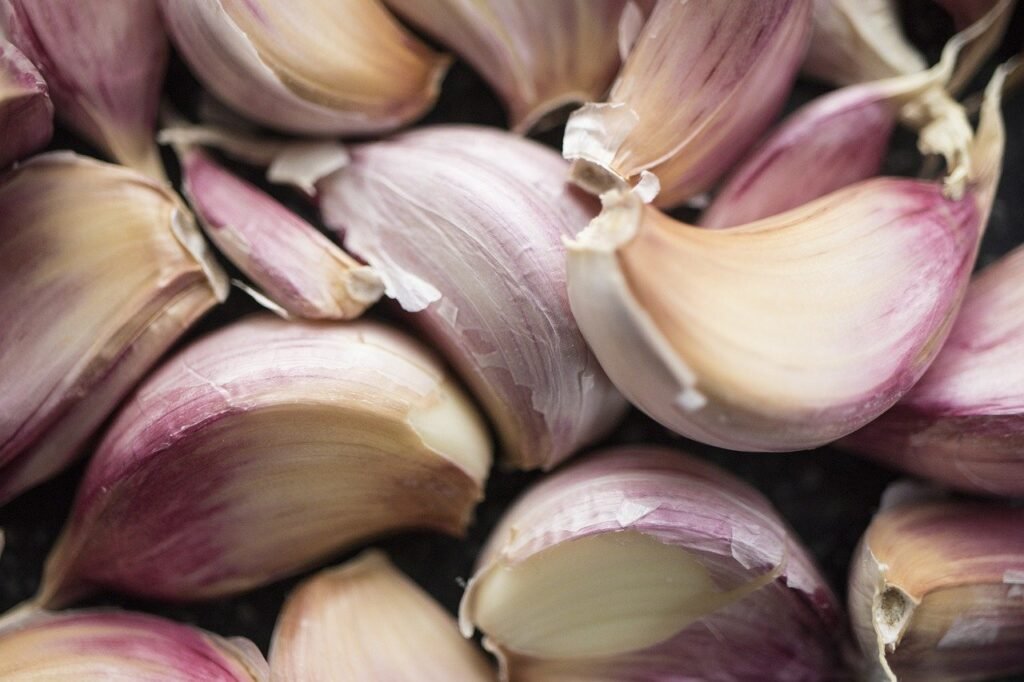The Power of Garlic for Cholesterol Management

Garlic, a pungent and flavorful herb, has been used for centuries for its culinary and medicinal properties. In recent years, it has gained attention for its potential health benefits, particularly in managing cholesterol levels. This article explores the impact of garlic on cholesterol and its potential role in promoting heart health.
Understanding Cholesterol: Cholesterol is a waxy substance produced by the liver and also obtained through certain foods. It plays a crucial role in the body’s functions, including hormone production and cell membrane structure. However, excessive levels of LDL (low-density lipoprotein) cholesterol, often referred to as “bad” cholesterol, can lead to the formation of plaque in the arteries, increasing the risk of heart disease and stroke.
Garlic and Cholesterol Management: Garlic contains various bioactive compounds, including organosulfur compounds like allicin, which is responsible for its characteristic smell and many of its health benefits. Research suggests that garlic may have positive effects on cholesterol levels, particularly in lowering LDL cholesterol.
Scientific Evidence: Numerous studies have investigated the effects of garlic on cholesterol levels. A meta-analysis published in the Journal of Nutrition analyzed 39 clinical trials and found that garlic supplementation was associated with modest reductions in total cholesterol and LDL cholesterol levels. However, it’s important to note that the cholesterol-lowering effects may vary among individuals, and the optimal dosage and duration of garlic supplementation are still areas of ongoing research.
Mechanisms of Action: The exact mechanisms by which garlic influences cholesterol levels are not fully understood. However, several theories have been proposed:
- Cholesterol Synthesis Inhibition: Garlic may help reduce cholesterol synthesis in the liver, potentially leading to lower LDL cholesterol levels.
- LDL Cholesterol Oxidation: Garlic may have antioxidant properties that help protect LDL cholesterol from oxidation, which is an early step in the formation of arterial plaque.
- Enhanced Cholesterol Elimination: Some studies suggest that garlic may enhance the elimination of cholesterol from the body, preventing its accumulation in the bloodstream.
Additional Benefits: Beyond its potential impact on cholesterol management, garlic offers other health benefits that contribute to overall cardiovascular health:
- Blood Pressure Regulation: Garlic has been associated with modest reductions in blood pressure, which is another significant risk factor for heart disease.
- Antioxidant and Anti-inflammatory Effects: Garlic contains antioxidants that help protect cells from oxidative damage and reduce inflammation, both of which are crucial in maintaining a healthy cardiovascular system.
Incorporating Garlic into Your Diet: To reap the potential benefits of garlic for cholesterol management, consider the following tips:
- Fresh Garlic: Consuming fresh garlic, either raw or cooked, provides the highest levels of allicin, the active compound responsible for its health benefits. Crushing or chopping garlic cloves before cooking helps release more allicin.
- Supplements: Garlic supplements are available in various forms, including garlic oil, aged garlic extract, and garlic powder capsules. However, it’s important to choose reputable brands and follow recommended dosages.
Considerations and Precautions: While garlic is generally safe for consumption, it’s important to consider the following:
- Medication Interactions: Garlic supplements may interact with certain medications, including blood-thinning drugs. Consult with a healthcare professional before starting garlic supplements, especially if you take any medications.
- Digestive Symptoms: Some individuals may experience digestive issues or heartburn when consuming garlic. If you have a known sensitivity or experience discomfort, try different preparations or consult a healthcare professional.
Garlic holds potential as a natural dietary addition for managing cholesterol levels and promoting heart health. While it may offer modest benefits in lowering LDL cholesterol, it should not replace prescribed medications or lifestyle modifications. Incorporating fresh garlic into your diet or considering garlic supplements should be done in consultation with a healthcare professional. By embracing a comprehensive approach that includes a healthy diet, regular exercise, and medical guidance, individuals can take proactive steps towards managing cholesterol levels and improving cardiovascular health.
Disclaimer: This article is for informational purposes only and should not be considered as medical advice. Consult a healthcare professional for personalized guidance and recommendations based on your specific circumstances.





